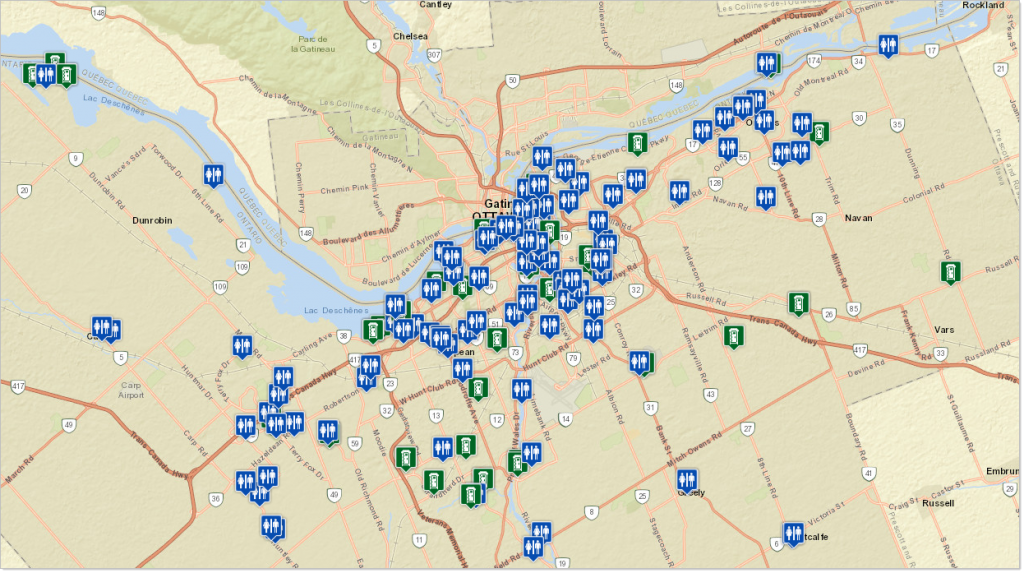In a city such as Ottawa the needs of tourists, outdoor activities of families, an aging population and people with disabilities, and the need to ensure effective public health combine to make the case that a network of safe, clean, accessible and environmentally responsible public toilets is essential. Which of us has not been caught short by our need for a toilet? The Crohn’s and Colitis Foundation surveyed their members and donors in 2010 only to find that more than 75% of them had been humiliated in this way.
What parent has not had their child urinate or defecate behind a tree in a park? Which pregnant woman, tourist, bus user, cyclist or jogger has not had moments where they worry about getting to a facility in time? Although Ottawa does have public restrooms in some large parks, their hours do not accommodate need. People with urgent needs, such as colitis and celiac sufferers, are held captive in their homes and cars. In the city core, where bars and restaurants are located, people urinate after hours in laneways and buildings, yet restaurant and bar owners fret about non-paying customers using their washrooms. Available toilets that are accessible to people of all abilities are a public health issue, a disability issue, a tourism issue and a key to sustainable cities and complete streets. The current situation is unacceptable in a capital city.
Tourists are shocked by the lack of public toilets here in Ottawa. There are many examples of fully functioning public toilet systems in other cities in the world, including Tokyo, Paris, London, Christchurch and Seoul.

